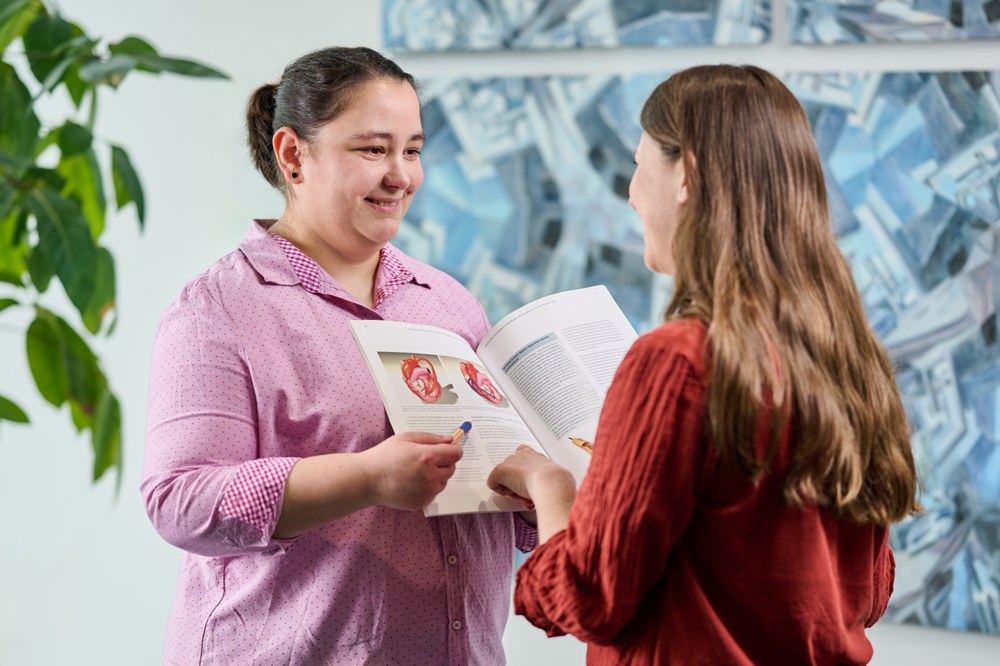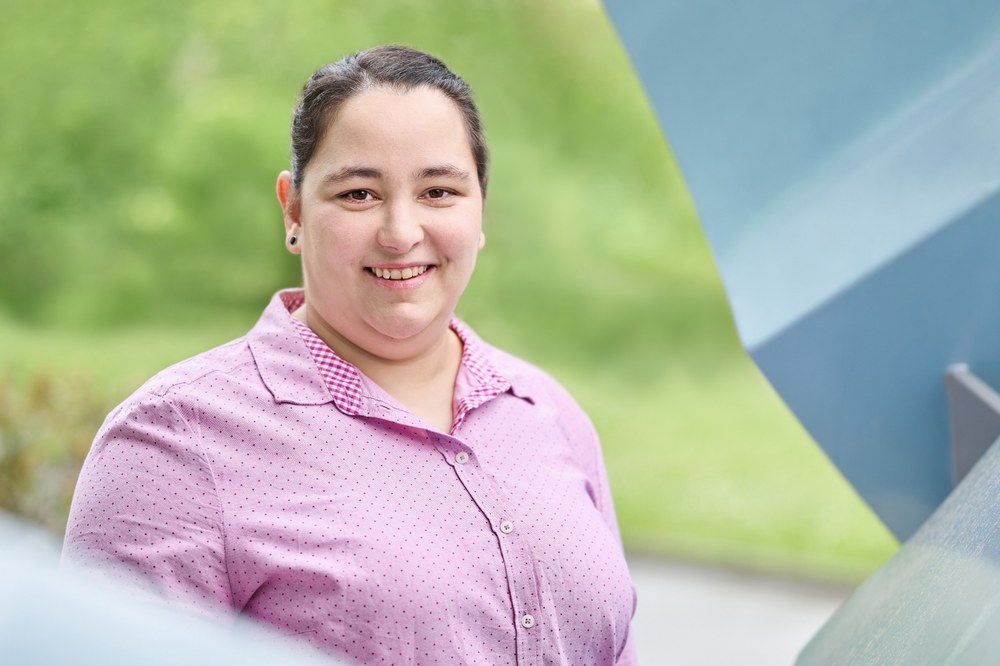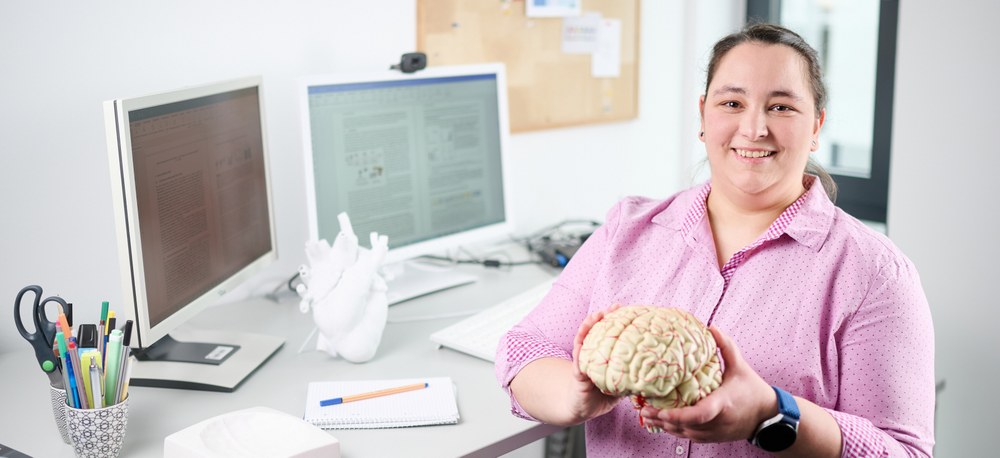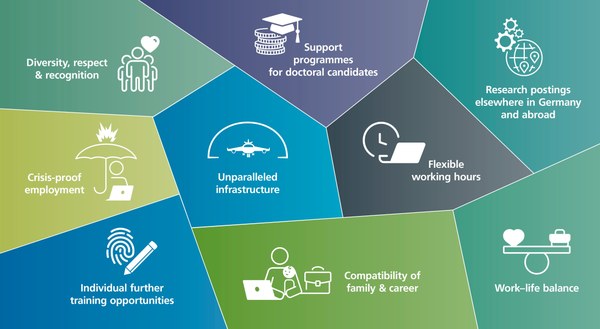Elise Radtke
Field of study: Cognitive science
Now: DLR Projektträger, Health
Elise Radtke studied cognitive science and pursued her doctorate in psychology in Osnabrück. She has been a Scientific Officer in the Health Division of the DLR Projektträger since 2020. In this interview, she talks about her work in the Clinical Studies team in the Medical Genome Research, Systems Medicine department.
Elise, what do you look forward to when coming to work in the morning?
Elise: I always look forward to an exciting day with lots of variety – and to the fact that I can contribute to getting good research off the ground with my work.
„In my job, I have my finger on the pulse of research. Clinical trials in particular are always about the latest therapies.“
What are you working on?
Elise: We support clients such as the German Federal Ministry of Education and Research in the orientation and implementation of their research funding. For example, we contribute our expertise to funding guidelines that address particularly pressing issues in health research. Once the funding programme has been published, I process applications from interested researchers, support them during the project phase – and ensure, for example, that deadlines are met and funding is used responsibly. In my job, I have my finger on the pulse of research. Clinical trials in particular are always about the latest therapies.

What does your typical working day involve?
Elise: E-mails and usually several telephone appointments a day, intensive analysis of research reports, looking for experts to review the funding applications, organising review rounds and – very importantly – examining and approving the funds that have been applied for. I am in close contact with research organisations, for example by visiting projects and attending specialist conferences.
I can also contribute my creative talent. For example, I contributed ideas to a planned film that explains a certain form of cancer therapy in a way that even non-experts can understand. In this way, current scientific findings quickly reach the public.
How is your work being used?
„It is important to me that the diversity of our society is reflected in research funding.“
Elise: My work at the DLR Projektträger helps to ensure that good research ideas can be implemented. We support scientists who are investigating and testing innovative and promising therapies. So that these therapies reach where they are needed as quickly as possible – in everyday clinical practice and with patients. In other words, we are helping to ensure that people in our society can live healthier lives.
It is important to me that the diversity of our society is reflected in research funding. Medications, for example, work differently on men and women, and older and younger people. If researchers take different perspectives into account, this leads to more innovative approaches for personalised treatment. We encourage this.

What are the highlights of your work?
Elise: I am proud when the results of a research project directly help people. For example, one of the projects I supervised found that psychotherapy for alcohol addiction can be much more successful if those affected don't have to be completely sober straight away, but first reduce their alcohol consumption. With this knowledge, many more addicts start therapy – a great success.
What special skills can you make good use of in your job?
Elise: Neuroscience was an important part of my studies, and I worked in research myself. This specialised background helps me to navigate both worlds – science and research funding.
Leave us a final thought.
Elise: Although I work full-time, I volunteer in youth work and local politics. It's not always easy to organise, but thanks to the flexible working hours at the DLR Projektträger, it's doable. It all fits together perfectly and I'm very happy with that.




